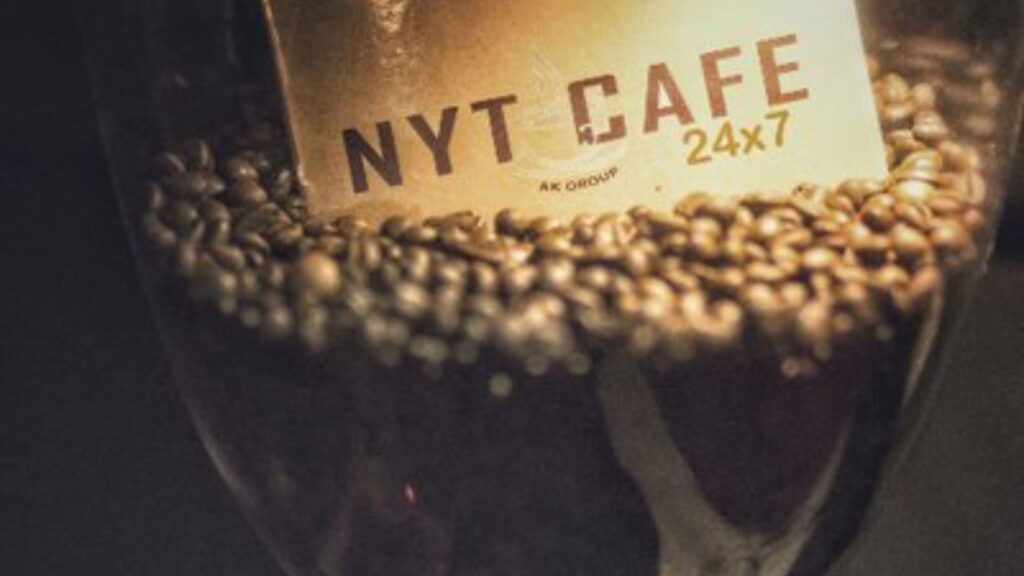Introduction
In an age where experiences and interactions are often tailored for maximum convenience and minimal effort, the phrase “like watery coffee nyt” serves as a poignant metaphor for the superficiality that can pervade modern life. Originally popularized by discussions in prominent publications, this analogy encapsulates a widespread sentiment of disappointment and dissatisfaction with the diluted quality of our everyday experiences, relationships, and consumer culture. This article delves deep into the metaphor’s implications, exploring how it reflects our society’s challenges and desires for authenticity and depth.
The Essence of like watery coffee nyt
Like watery coffee nyt, as a concept, conjures an image of a beverage lacking substance—diluted to the point of losing its essential flavor and character. Similarly, in our contemporary world, many experiences can feel similarly diluted. The proliferation of options, whether in food, entertainment, or social interactions, often leads to a homogenized experience that leaves individuals feeling unfulfilled. Just as a weak cup of coffee may fill the cup but fails to satisfy the palate, many modern conveniences offer a semblance of satisfaction while leaving deeper desires unaddressed.
Historical Context and Cultural Reflection
The metaphor of watery coffee reflects broader cultural shifts and societal expectations. Over the years, consumer culture has evolved to prioritize speed and convenience, often at the expense of quality. In a society that increasingly values efficiency, products are mass-produced to meet the demands of a fast-paced lifestyle. This has resulted in a landscape where the richness of experiences—whether through food, art, or human connection—can feel thin and insubstantial.
Several articles have examined the implications of this metaphor in the context of modern life. The overwhelming abundance of choices like watery coffee nyt can lead to a dilution of meaningful experiences. Consumers are often faced with a paradox: the more options available, the harder it becomes to find something that genuinely resonates with them. This saturation of mediocre offerings echoes the sentiment of watery coffee—while options abound, substance is often lacking.
The Impact of Digital Culture
One significant aspect of modern disconnection is the rise of digital culture, which has transformed how people interact with one another and consume content. Social media platforms, while providing an avenue for connection, often create an environment where interactions are superficial and fleeting. The constant barrage of updates and notifications can lead to a sense of overload, leaving individuals craving depth and authenticity.
This phenomenon mirrors the experience of drinking watery coffee. Just as a poorly brewed cup fails to deliver the robust flavors one expects, digital interactions can feel shallow, lacking the warmth and depth of face-to-face conversations. Studies have shown that despite being more connected than ever, people often report feelings of loneliness and isolation, underscoring the gap between digital communication and meaningful connection.
Erosion of Authenticity
The pursuit of authenticity in a world dominated by carefully curated online personas poses another challenge. Individuals often feel pressured to present an idealized version of themselves, leading to a disconnect between their online presence and real-life experiences. This dissonance can contribute to feelings of inadequacy and dissatisfaction, as people compare their authentic selves to the polished images they see online.
In this context, the metaphor of like watery coffee nyt takes on additional layers of meaning. Just as a weak cup lacks the boldness expected from a true coffee experience, the pressure to conform to societal standards can lead to a dilution of one’s identity. Many find themselves longing for genuine connections and experiences that resonate on a deeper level, rather than those that simply fulfill a superficial need.

Consumer Culture and the Quest for Quality
The relationship between consumer culture and the metaphor of watery coffee is particularly striking. As consumers, we often find ourselves inundated with choices that promise satisfaction but frequently fall short. From fast food chains to mass-produced products, the emphasis on convenience can result in a loss of quality and flavor, both literally and metaphorically.
A notable example can be found in the food industry, where convenience often trumps quality. Pre-packaged meals and fast food options may provide a quick solution for busy individuals, but they often lack the depth of flavor and nutritional value associated with home-cooked meal like watery coffee nyt. This parallels the experience of drinking watery coffee, which may fill you up but leaves you wanting more.
In response to this trend, a movement toward artisanal and locally sourced products has gained momentum. Consumers are increasingly seeking out experiences that prioritize quality over convenience, reminiscent of the desire for a rich, flavorful cup of coffee. This shift reflects a broader yearning for authenticity and depth in our interactions with food, art, and each other.
The Search for Meaningful Connections
In the quest for more profound experiences, many individuals are turning to alternative lifestyles that emphasize intentional living. Concepts such as slow food and slow travel advocate for savoring experiences rather than rushing through them. This approach seeks to counteract the dilution of meaningful interactions and encourage a more mindful engagement with the world.
Just as one might seek out a perfectly brewed cup of like watery coffee nyt that delights the senses, individuals are increasingly pursuing relationships and experiences that offer depth and richness. This desire for authenticity is not limited to food; it extends to personal connections, artistic endeavors, and even career choices.
The Spiritual Dimension
Beyond the realm of consumer culture and digital interactions, the metaphor of watery coffee touches upon deeper spiritual concerns in contemporary life. Many people today grapple with feelings of emptiness and disconnection, often stemming from a relentless pursuit of material wealth and external validation. In a society that equates success with accumulation, individuals can find themselves feeling unfulfilled despite outward achievements.
The imagery of watery coffee serves as a poignant reminder of this spiritual crisis. Just as a cup of coffee diluted with water leaves one craving the rich, robust flavors of a well-crafted brew, the relentless pursuit of superficial goals can lead to a sense of spiritual desolation. The quest for deeper meaning and purpose becomes paramount as individuals search for experiences that nourish their souls.
Moving Toward Authenticity and Depth
Recognizing the challenges posed by modern disconnection, many individuals are actively seeking to cultivate a life that prioritizes depth over superficiality. This movement towards authenticity encompasses various aspects of life, including relationships, work, and personal interests.
- Reconnecting with Nature: Many people are rediscovering the benefits of spending time outdoors and engaging with nature. This connection fosters a sense of grounding and fulfillment that contrasts starkly with the fast-paced digital world.
- Meaningful Work: The desire for purposeful work has led to a rise in entrepreneurial ventures that prioritize passion over profit. Individuals are increasingly seeking careers that align with their values and provide opportunities for meaningful contributions.
- Building Genuine Relationships: The quest for authentic connections has sparked a desire for deeper friendships and community engagement. Many are opting for quality over quantity in their social circles, focusing on nurturing relationships that offer mutual support and understanding.
Conclusion
The metaphor of “like watery coffee nyt” serves as a powerful reflection of the disconnection that permeates modern life. It encapsulates the challenges of navigating a world that often prioritizes convenience over quality, leading to a dilution of experiences and relationships. As individuals grapple with feelings of emptiness and dissatisfaction, the desire for authenticity and depth becomes increasingly pronounced.
In a society where the richness of experiences can feel watered down, there is a growing movement toward seeking out what truly nourishes the soul. By prioritizing quality connections, engaging with meaningful work, and cultivating a deeper appreciation for life’s experiences, individuals can reclaim a sense of fulfillment that transcends the superficial.
